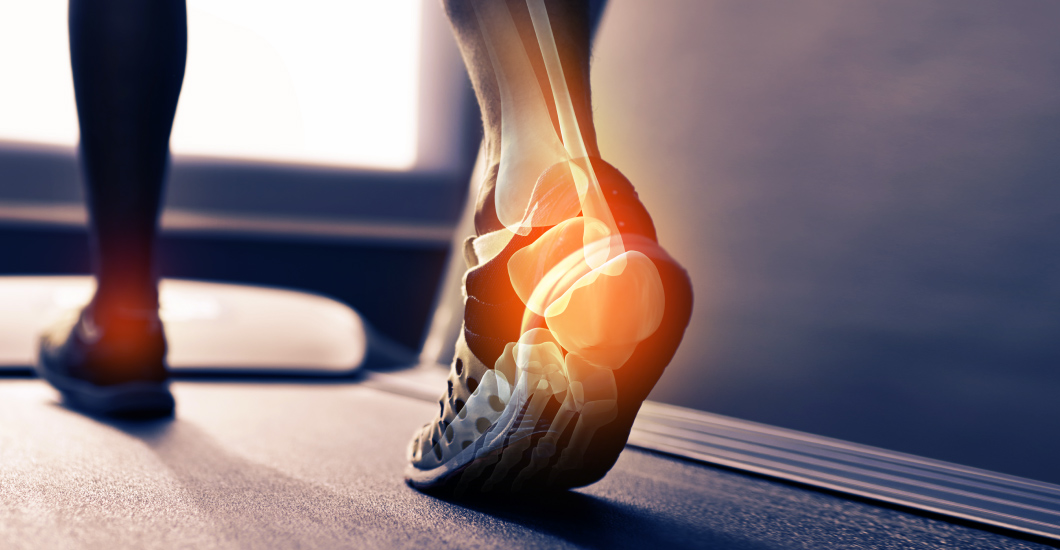The importance of foot health and how to maintain it
Doctor's advice /
Discover essential tips for maintaining foot health and preventing common problems like athlete's foot, bunions, and plantar fasciitis.

Did you know that there are 28 bones in each of your feet? These bones and more than 30 joints allow for a wide range of movements, including standing, walking, stretching, jogging, and more. It's easy to take foot health for granted when everything feels great, but when something is wrong, you realize just how important your feet are. This is why it's essential to maintain healthy feet and avoid injuries that compromise their functionality.
Key Takeaways
- Foot health is crucial for overall well-being and mobility.
- Regular inspection and good hygiene are vital for maintaining healthy feet.
- Proper footwear and exercise can prevent foot problems.
- Keeping a healthy weight reduces stress on your feet.
Why is Foot Health Important?
Foot health is pivotal because our feet bear the weight of our entire body and are crucial for mobility. Ignoring foot health can lead to pain, discomfort, and more severe complications that might affect posture, gait, and overall well-being. Your feet are the basis of your mobility and take thousands of steps every day. Consequently, they deserve a proper care routine so that you can walk comfortably and avoid potential problems in the future.
Essential Tips for Maintaining Foot Health
1. Inspect Your Feet Regularly
Regular inspection of your feet is a simple yet effective way to maintain foot health. Look for any changes in color, texture, or appearance. Early detection of issues such as fungal infections, blisters, or cuts can prevent more severe problems down the line. If you notice any persistent issues, it’s best to consult with a healthcare provider.
2. Maintain Good Foot Hygiene
Keeping your feet clean is crucial. Wash your feet daily with soap and water, making sure to clean between your toes. After washing, dry your feet thoroughly to prevent fungal infections, which thrive in moist environments. Additionally, changing socks daily helps keep your feet dry and reduces the risk of infections.
3. Hydrate the Skin
Just like the rest of your body, the skin on your feet needs to stay hydrated. Rub a thick moisturizing lotion into your feet after showers or baths to keep the skin soft. However, avoid applying lotion between the toes, as too much moisture in those areas can lead to infections.
4. Buy Proper-Size Shoes
Wearing the right size shoes is crucial for foot health. Ill-fitting shoes can cause blisters, calluses, and even long-term foot problems. Remember, you may not wear the same size in shoes made by different manufacturers. Always try on shoes before buying them and make sure they fit well and provide adequate support.
5. Cut Toenails Straight Across
Cutting your toenails correctly is essential to avoid issues like ingrown toenails. Always cut your toenails straight across and avoid cutting into the corners. If you have any sharp corners or rough edges, gently file them away with an emery board.
6. Exercise
Regular exercise is beneficial for your overall health and your feet. Walking is a great way to keep weight under control and is an excellent conditioner for the feet. Make sure to wear appropriate athletic shoes that provide good support when exercising to avoid injury.
7. Maintain a Healthy Weight
Maintaining a healthy weight is crucial for reducing the stress on your feet. Being overweight increases the force on your feet with each step, which can lead to various foot problems, including plantar fasciitis and arthritis. A balanced diet and regular exercise can help you maintain a healthy weight and keep your feet in good shape.
Common foot problems and how to prevent them
Understanding common foot problems and how to prevent them can help you maintain healthy feet.
- Athlete's Foot: Athlete's foot is a common fungal infection that thrives in warm, moist environments. To prevent it, keep your feet clean and dry, especially between the toes. Avoid walking barefoot in public places like locker rooms and swimming pools.
- Bunions: Bunions are bony bumps that form on the joint at the base of your big toe. They can be caused by wearing tight shoes. To prevent bunions, wear shoes with a wide toe box and avoid high heels.
- Plantar Fasciitis: Plantar fasciitis is an inflammation of the band of tissue that runs across the bottom of your foot. It can cause severe heel pain. To prevent plantar fasciitis, wear supportive shoes and avoid walking barefoot on hard surfaces. Stretching your feet and calves regularly can also help.
- Ingrown Toenails: Ingrown toenails occur when the edges of your toenail grow into the skin. They can be painful and lead to infections. To prevent ingrown toenails, cut your nails straight across and avoid cutting them too short.
When to see a Doctor
If you experience persistent foot pain, swelling, or any other unusual symptoms, it's essential to consult a healthcare provider. Early intervention can prevent minor issues from becoming serious problems. Conditions like diabetes require special attention to foot health, as minor injuries can lead to severe complications.
Conclusion
Your feet are the foundation of your mobility, taking thousands of steps every day. By following these simple tips, you can maintain good foot health and prevent problems in the future. Remember to inspect your feet regularly, maintain good hygiene, wear properly fitting shoes, and keep your skin hydrated. Exercise regularly and maintain a healthy weight to keep your feet strong and healthy.
Get care at Sanitas
Taking care of your feet is crucial for maintaining your overall health and mobility. If you're experiencing any foot problems or have concerns about your foot health, don't hesitate to book an appointment at Sanitas Medical Center. Our experienced healthcare providers are here to help you keep your feet healthy and pain-free. Call 1-844-655-4827 today to schedule your appointment or book online!


